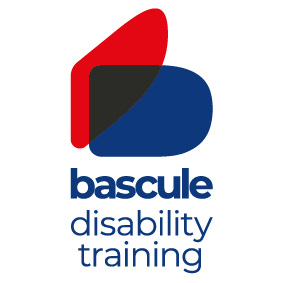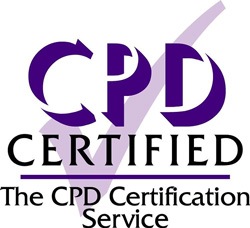Making reasonable adjustments also requires a cultural shift
Making reasonable adjustments for employees with disabilities is vital for them to thrive and perform to their best ability. Whilst a failure to make a reasonable adjustment is considered discrimination under the Equality Act 2010, employers are still facing issues around implementing them.
The Great Big Workplace Adjustments Survey 2023, conducted by the Business Disability Forum, recently demonstrated this when it revealed that employees with disabilities are waiting far too long for reasonable adjustments, with some having to constantly push for change, or worse still, make them themselves.
The survey found:
- 78 per cent of employees with disabilities said they, rather than their employer, had to initiate the process of getting adjustments.
- 58 per cent of employees said getting the adjustments they needed was due to how assertive and confident they are to ask for that support.
- 56 per cent of employees with disabilities said there are still disability related barriers in the workplace after adjustments have been made.
- Only 37 per cent of employees with disabilities feel their employer is genuine about removing all disability-related barriers and making the workplace inclusive for disabled employees.
- Only 18 per cent of employees with disabilities said their adjustments have removed all barriers in the workplace.
So why are employers struggling to implement change?
The Great Big Workplace Adjustment Survey addressed many issues and identified significant barriers, many of which were related to the ways in which disability is perceived by colleagues, senior management, and the wider culture of the business.
It stated:
“Workplace adjustments did not address the barriers elsewhere in the organisation that disabled employees continued to experience. Examples of these given by disabled employees were bullying and harassment, regular hostile comments and microaggressions from colleagues and senior leaders, inaccessible shared spaces (such as eating areas, social areas, and walkways), transport to work, inaccessible development opportunities, potentially unfair promotion and internal recruitment processes, and getting around the whole workplace site. They [managers] often did not have the scope of authority to make adjustments to the culture and wider physical and non-physical working environments and social relationships which existed at all levels of the organisation. This means that it continues to be the case that workplace adjustments address barriers in someone's immediate job, working location and team, but wider cultural barriers related to bullying and harassment, general workplace culture, and social interactions and behaviours, still need wider addressing.”
The report clearly identifies the need for more than changes to the way specific individuals work.
Making the first steps in changing culturally
People often ask me where to start when making changes to become a more inclusive organisation, and I always say the same thing. Before we do anything, we must change how we perceive disability.
An example I often use to explain this, is an experience I had just before I was about to deliver a keynote speech at a conference event. As a wheelchair user, I was heading for the second floor with a colleague, in search of the best way up.
It turned out that the venue had a process, whereby wheelchair users would be escorted to another area of the building by someone stood by and ready to help. All good. That is until the receptionist saw me, and realised he had a specific procedure ready for me, and so he panic shouted- “Wait There!” pointing at me and indicating I stop immediately. He fumbled around trying to remember the process, looking for his walkie talkie, attempting to summon a chaperone. All throughout this he was addressing my colleague, “Where is he going?”, “Is he a delegate or speaker?” rather than talk to me. The whole interaction made me feel like a bomb being delivered, or something that, if not dealt with correctly, could cause a disaster.
In a case like this- the organisers had done everything in their power to create an accessible entrance- (and done a good job), but they completely forgot to train the person managing it, making the experience accessible, but very unpleasant.
Much like this, providing reasonable adjustment and half-heartedly executing it, and not making any cultural progress to change how disability is perceived or understood internally, will mean that people with disabilities will continue to struggle. Issues around bullying and working relationships will inevitably arise.
Overcoming barriers
One of the biggest barriers most commonly listed in creating reasonable adjustments is that management staff are fearful of team members perceiving adjustment as favouritism for the member of staff with a disability. They feel questions such as - “Why do they get to work from home?”, “How do they get the option of starting later?”, “Why do they get that parking space?” will arise.
Developing awareness, creating opportunities to better understand disability, and fostering an open, more empathetic workplace helps colleagues to better understand what reasonable adjustment is, and why it is important. After this, they will no longer reflect on what they are not receiving, but instead, be better equipped to understand what support others may need. This will undoubtedly impact how staff with disabilities perform.
The Business Disability Forum proves this, where it reports that people with disabilities said reasonable adjustments helped them stay in their job (48%) and be more productive (48%).
In short, we must always come back to the understanding that people are the most important and critical asset of any business, and if we want to see change, it must first happen in them.
Reasonable adjustment isn’t just about providing the right environment and tools. Most importantly, we must help colleagues to understand, empathise, support and work together with those with disabilities, helping each other to bring the best versions of ourselves to the workplace each day.
Chris Jay, Managing Director, Bascule Disability Training
If you would like to make a step towards changing your company’s cultural perspective towards disability, talk to us about training- or look at our future online training options HERE




